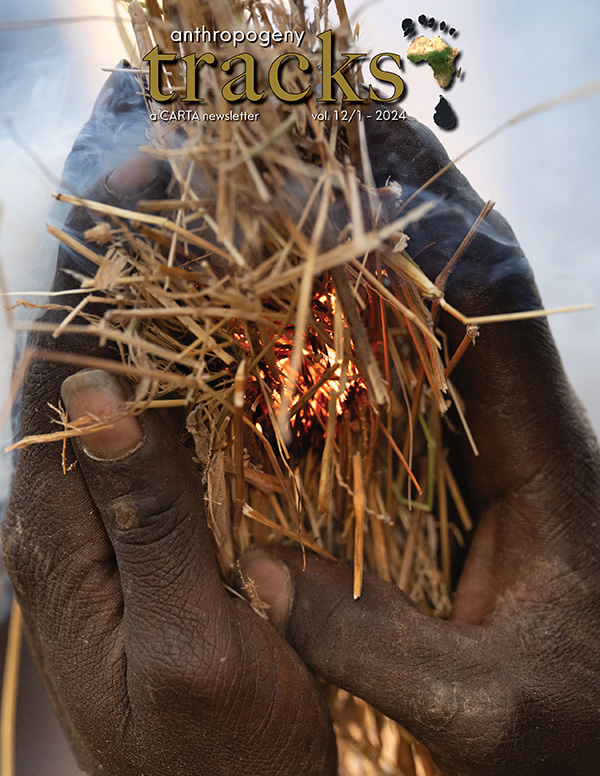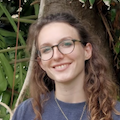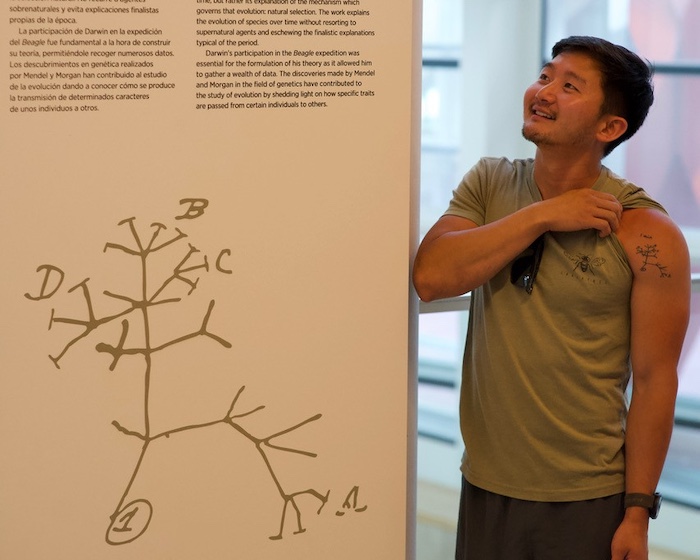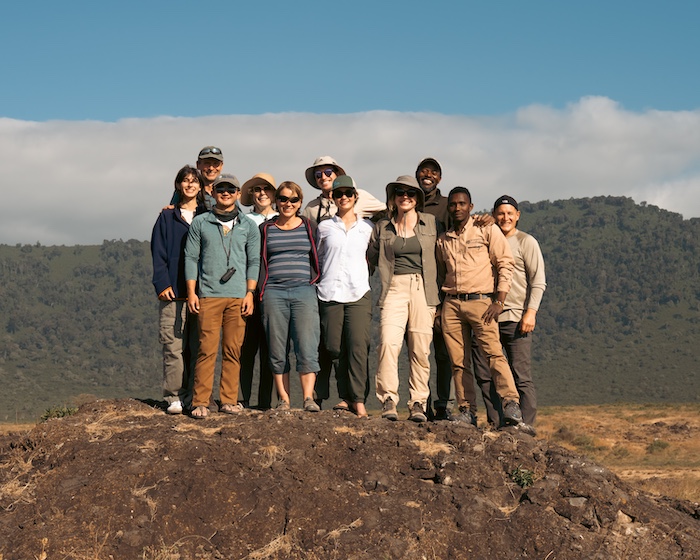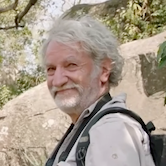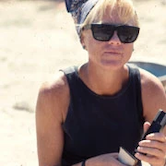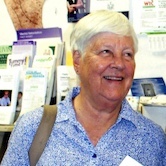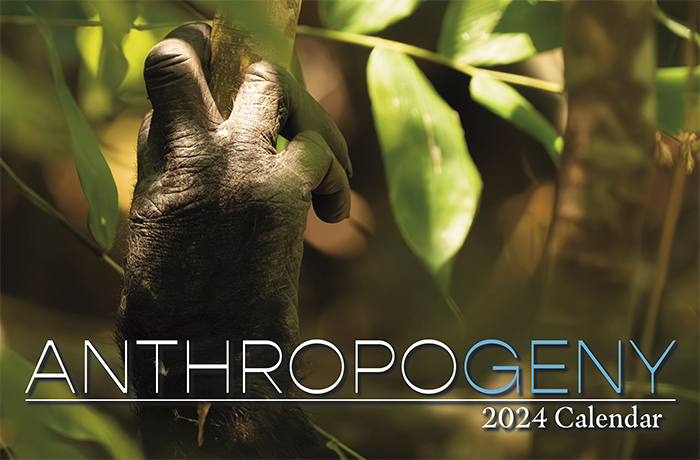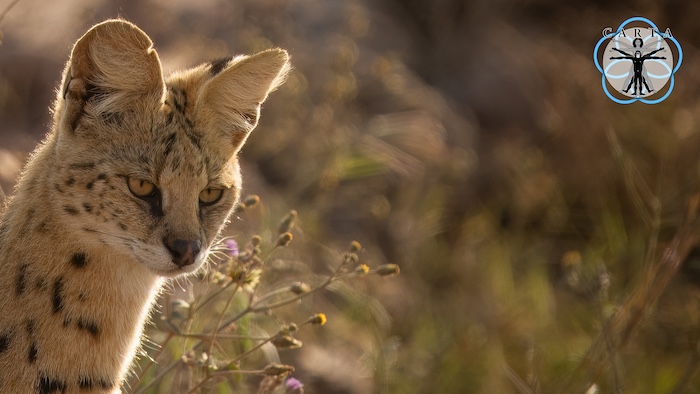"Inside" CARTA's 2024 Winter Newsletter:
- Message from CARTA's Co-Directors
- Upcoming Symposia
- Awards & Honors
- CARTA-Inspired Publications
- Member Media
- Recent Symposia
- CARTA’s Videos Get New Look
- Anthropogeny Raps
- Anthropogeny Specialization Track Highlights
- In Memoriam
- New Calendar & Zoom Backgrounds
- Support CARTA
- Follow Us on Social Media
We are pleased to share the latest iteration of CARTA’s newsletter, Anthropogeny Tracks.
In this issue, you will find student report excerpts from last year’s Anthropogeny Field Course in Spain (Atapuerca, Altamira, and Santander) and Tanzania (Ngorongoro, Olduvai, Yaeda Valley, Issa Valley, and Mahale National Park). We were fortunate to have a filmmaker, Rea Xenitopoulos, join the trip and produce an amazing visual summary of the field course.
We would also like to share our latest CARTA Summary Report. In it we highlight many achievements by our CARTA members, both honors received and CARTA-inspired publications produced. You will also see feedback from CARTA members on what they value about CARTA and what kind of collaborative work resulted from their engagement with the organization.
Our recent symposium on Body modification: Anatomy, Alteration, and Art in Anthropogeny in February 2024 was virtual and attracted close to 600 viewers from over 36 countries and regions. Humans are the only species to permanently modify their bodies and most societies use a variety of techniques to do so for many different reasons. Many of these forms of body modifications can be considered “heritage practices” but several raise important moral challenges, when they are carried out on young children without their consent.
In our November 2023 symposium, Comparative Anthropogeny and Other Approaches to Human Origins, each speaker addressed a particular feature of humans, and explored if and how this feature is specific to humans. It was our great pleasure that two of our speakers at this symposium, Corinna Most, Ph.D, from Iowa State University, and Andrew Schork, Ph.D., from Copenhagen University Hospital, are graduates from the UCSD Anthropogeny Graduate Specialization program that CARTA administers. This was the first time that we have had alumni from the program participate as speakers at a CARTA symposium and it means a lot to us.
The poster for the November event, created by CARTA’s Jesse Robie, combines the iconic human negative handprint created by spraying ochre over a hand that is held against a rock surface (one of the earliest forms of art made over 30,000 years ago in both Europe and Asia) with the contours of four different ape hands, redrawn from the classic anatomical drawings by Adolph Schultz. This image highlights the diagnostic symbolic dimension of our species. To date, we have no evidence that other primates create negative handprints or read tracks of any kind.
CARTA’s symposium in May 2023 on The Role of Myth in Anthropogeny drew a large audience to the Salk Institute’s Conrad Prebys Auditorium in La Jolla, California, and the live stream had over 400 online viewers from 27 countries. The symposium combined fascinating talks by experts on literature, folklore, anthropology, biology, archeology, journalism, and sociology in the exploration of the importance of storytelling for our species. The talks highlighted not only the central role of storytelling in creating shared understandings for our species, but also the dangers of alluring false stories and myths that many of us anthropogeny researchers fall prey to.
This Anthropogeny Tracks issue also features a collection of “Anthropogeny Raps” by a variety of CARTA-commissioned artists. Each artist produced a rap video on a different anthropogeny related topic: “I’m Human” by Baba Brinkman, includes 27 volunteers from all over the world who say “I’m Human” in different languages. The video was filmed inside Rising Star Cave in South Africa. Other Anthropogeny Raps include “CARTA” by Baba Brinkman, “Language Instinct” by Nathan Dufour, “Grandmother Hypothesis” by Dizzy Senze, “Healthy Hominids” by MC Zeps, and “Caveman to Spaceman” by Mega Ran. The creative process included iterative exchanges between the artists and CARTA. You can watch these videos on YouTube and on our website, where lyrics are linked in each video’s description.
Finally, we would like to call your attention to CARTA’s YouTube playlists, compiled by Anthropogeny Graduate Specialization students as part of their assignment in the Spring 2023 Advanced Anthropogeny seminar. Each list assembles different CARTA talks around a particular topic ranging from Immunity to Tools, Reproduction to Archeology, Genomics to the Human Mind, and from Life History to Human Health.
We hope that you will enjoy this newsletter and very much hope to see you at an upcoming symposium, in person or online.
Pascal Gagneux, CARTA Executive Co-Director
Katerina Semendeferi, CARTA Co-Director
Gerald F. Joyce, CARTA Co-Director
Join CARTA in 2024 as we continue to explore the origin of humans and the implications for the past, present, and future of our species.

Lucy 50th Anniversary Symposium: The Impact of "Lucy" on Human Origins Science (Co-sponsored by CARTA)
Saturday, April 6, 20249:00am - 5:00pm, Mountain Time
(Arizona State University and online)

How Humans Came to Construct Their Worlds
Friday, October 11, 20241:00pm - 5:30pm, Pacific Time
(Salk Institute and online)
Member Awards & Honors
The following external awards and honors were received by CARTA Members and shared with us since our last newsletter. You may learn more about each CARTA Member by clicking on their name to view their full CARTA profile.
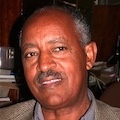
Berhane Asfaw, National Museum of Ethiopia
voted one of the 100 Most Reputable Africans of 2024 by Reputation Poll

Sarah B. Hrdy, Professor Emerita, University of California, Davis
received the 2023 Bowlby-Ainsworth Award from the Center for Mental Health Promotion & New York Attachment Consortium

Daniel Geschwind, University of California, Los Angeles
awarded the 2022 Rhoda and Bernard Sarnat International Prize in Mental Health by the National Academy of Medicine and the 2022 American Academy of Neurology Cotzias Lecture and Award
Alice Gorman, Flinders University
named as an "Innovator" in The Explorers Club 50 for 2024: Fifty people changing the world, that the world needs to know about

Mark Moffett, Smithsonian Institution, National Museum of Natural History
received a Templeton Grant for "The Life And Death Of Societies: Investigating The Societies Of Animals To Understand Our Own"

Terrance Sejnowski, Salk Institute for Biological Studies
named 2024 Scientist of the Year by the ARCS Foundation of San Diego
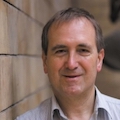
Chris Stringer, Natural History Museum, London
awarded the 2023 Huxley Medal by the Royal Anthropological Institute (RAI)

Sarah Tishkoff, University of Pennsylvania
invited to give a 2024 Mendel Lecture, elected as 2024 President of the American Society of Human Genetics, and received the 2022 Wilbur Cross medal for Yale University alumni achievement
Caren Walker, UC San Diego
received the 2024 Boyd McCandless Award for contributions to developmental psychology

Bernard Wood, George Washington University
received the Royal Anthropological Institute's President's Lifetime Achievement Award in 2023
Graduate Fellowships
Each year, it is CARTA's great pleasure to announce the awarding of the Annette Merle-Smith Fellowships and the CARTA Fellowships in Anthropogeny. A pall fell over last year’s celebration with the passing of CARTA Major Sponsor Mrs. Annette C. Merle-Smith. So we offer a belated congratulations to all our 2023-24 scholars and thanks to our generous sponsors, and especially Annette, who have made their studies possible! You may learn more about each student by clicking on their name to view their full CARTA profile.
Read more about the history of these Fellowship Programs and browse our past awardees. We invite you to learn more about UC San Diego's one-of-a-kind trans-disciplinary Graduate Specialization in Anthropogeny.
2023-2024 Annette Merle-Smith Fellows
2023-2024 CARTA Fellows
A selection of 2023 CARTA-inspired publications submitted by CARTA Members, which acknowledge CARTA's role in contributing to the research described. CARTA members are listed in bold.
Below is a selection of media stories from our CARTA members:
 Jean-Pierre Changeux:
Jean-Pierre Changeux:
- Jean-Pierre Changeux: “Since childhood, I have sought to understand the world” (Google translated - see original in French). La Croix, Apr 30, 2023
- At the Louvre with Jean-Pierre Changeux (Google translated - see original in French). Tribune des Amis du Louvre
- Patricia S. Churchland:
- Philosophy of Brain (podcast). New Books Network, Jul 26, 2021
- The Neuroscience of Conciousness (podcast). Art19, Jul 6 2021
- How Important is the Brain to the Great Philosophical Questions? (podcast) Why? Radio, Dec 3, 2020
- Will Artificial Intelligence Have a Conscience? TechTalks, Sep 28, 2020
- Part I: The Hornswoggle Problem (podcast). The Panpsycast Philosophy Podcast, Aug 2, 2020
- Part II: The Conscience (podcast). The Panpsycast Philosophy Podcast, Aug 9, 2020
- To Understand the Mind, We Must Understand the Brain. UCI CNLM, Jan 27, 2020
- Mark Collard: Many prehistoric handprints show a finger missing. What if this was not accidental? The Guardian, Dec 23, 2023
- Daniel Dennett: How to Live a Happy Life, From a Leading Atheist. The New York Times Magazine, Aug 25, 2023
- Evan Eichler: Scientists have completely sequenced the human Y chromosome for the first time, with huge implications for health and evolution research. Business Insider, Aug 23, 2023 (Includes quote from Pascal Gagneux)
- Michael Gurven: Why postmenopausal women are so crucial to our evolutionary success New Scientist, Jan 23, 2024
- Mark Honigsbaum: Sickly sweet: how our sugar-coated cells helped humanity turn illness into evolution. The Guardian, Dec 10, 2023 (discusses work of Ajit Varki and Pascal Gagneux)
- Curtis Marean: A Compelling Theory to Explain a Key Trait of Modern Humans CounterPunch, Jan 19, 2024
- Briana Pobiner:
- Giant sloth bone jewelry found in Brazil enters the debate on human occupation of the Americas (Google translated - see original in Portuguese). The Conversation US, Sep 15, 2023
- Special: People Eating People (podcast). Smithsonian Sidedoor, Jul 31, 2023
- Origins of Human Meat Consumption (podcast). Dr. M’s Women and Children First Podcast, Apr 29, 2023
- What makes us human, paleontological time machines and bigging up science education (podcast). PrimateCast, Nov 15, 2022
- Federico Rossano: Talking Buttons Try to Break the Pet-Human Language Barrier. Discover Magazine, Dec 29, 2023
- Terry Sejnowski: Why Do A.I. Chatbots Tell Lies and Act Weird? Look in the Mirror. The New York Times, Feb 26, 2023
- Sarah Tishkoff:
- ‘Pangenome’ hopes to represent more diverse view of humans Science News, May 10, 2023
- Human geneticists apologize for past involvement in eugenics, scientific racism Science News, Jan 24, 2023
- Ajit Varki:
- Anthropogeny: Implications for the Principles and Practice of Medicine. UCSD Medicine Grand Rounds, Sep 6, 2023
- Avoid FOMO by catching #DiscoverBMB 2023’s greatest hits. ASBMB Today, Jun 26, 2023
- Timothy Wright:
- NMSU researchers study older parakeets to find out whether learning declines with age. KRWG News, Jul 4, 2023
- Why can parrots talk? TED-Ed, Jun 23, 2022
If you missed any of CARTA’s recent symposia, or would like to enjoy them again, you will find them permanently archived on multiple online sites, including CARTA, UCSD-TV, iTunes, and YouTube. These recordings contain high-quality closed captions to enhance your viewing experience. Closed captions this year were made possible through the generosity of CARTA Patrons Ingrid Benirschke-Perkins and Gordon Perkins, who are viewers like you. If you are interested in sponsoring or otherwise contributing to a future CARTA symposium, please visit our support page.
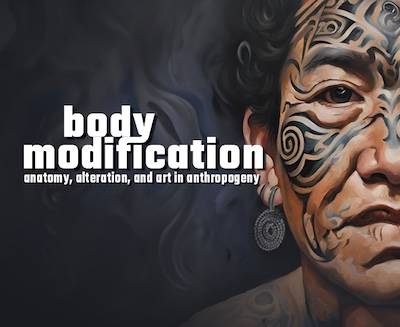
Body Modification: Anatomy, Alteration, and Art in Anthropogeny
February 9, 2024
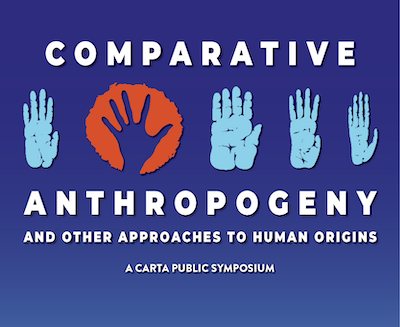
Comparative Anthropogeny and Other Approaches to Human Origins
November 3, 2023
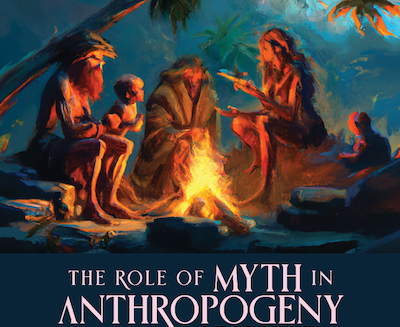
The Role of Myth in Anthropogeny
May 19, 2023
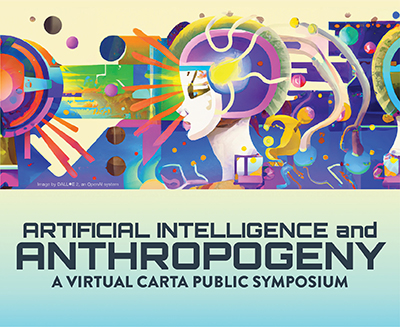
Artificial Intelligence and Anthropogeny
March 3, 2023
As you’ve enjoyed watching our most recent CARTA symposia over YouTube, you may have noticed some changes. Humans are constantly evolving and so is the UCTV audience and their habits. To adapt to this viewing landscape, you’ll see striking thumbnail images and a brief, complementary title (with the original title above the program description and right below the actual video).
UCSD-TV Producer Natalie Walsh explains, “we changed our strategy for the thumbnail images and titles last fall [2023] because…the thumbnail image/title is the most important chance to grab someone's attention (and click on the video...and stay to watch it)!"
This new format seems to be working, catapulting CARTA Executive Co-Director Pascal Gagneux’s Fall 2023 talk, “Did humans evolve covert ovulation?”, which became “Why did humans evolve concealed ovulation???” to 201,000 views and counting!
See how the new format grabs you from the November 2023 event "Comparative Anthropogeny and Other Approaches to Human Origins":
CARTA Member Mark Moffett: "Social complexity: Why modern humans are more like certain ants than chimpanzees" became “Humans vs Ants”
CARTA Member & UC San Diego Graduate Specialization in Anthropogeny Alum Andrew Schork PhD ’16: "How special are our Neanderthal genes? A look at archaic introgression." became “How special are our Neanderthal genes?”
CARTA Member & UC San Diego Graduate Specialization in Anthropogeny Alum Corinna Most PhD ‘18: "The evolution of shorter inter-birth intervals in humans" became “Human Birth Spacing”
Below you will find a collection of six bespoke music videos created by 2016 CARTA symposium performer, award-winning rap artist, and playwright, Baba Brinkman, especially to celebrate the CARTA Leadership Transition on July 1, 2022.
CARTA Music Video
Baba Brinkman tells the story of the Center for Academic Research and Training in Anthropogeny (lyrics)
June 14, 2022
Grandmother Hypothesis
Dizzy Senze raps about The Grandmother Hypothesis, which links human grandparental care and the evolution of big brains (lyrics)
November 22, 2022
The Language Instinct
Is Language Innate? Nathan Dufour Oglesby raps about "The Language Instinct" - title drawn from a book by Steven Pinker (lyrics)
November 30, 2022
I'm Human
Baba Brinkman unpacks some of the findings and also some of the unanswered questions in the field of "Anthropogeny" (lyrics)
April 7, 2023
Healthy Hominids
Healthy Hominids is a www.EventRap.com music video collaboration with MC ZEPS (lyrics)
April 12, 2023
Cavemen to Spacemen
Cavemen to Spacemen is a www.EventRap.com music video collaboration with Mega Ran (lyrics)
June 28, 2023
The Graduate Specialization in Anthropogeny provides graduate students from within a variety of participating UC San Diego PhD programs the opportunity to obtain a parenthetical degree in research and education on explaining the human phenomenon. The goal is to provide a broad and explicitly transdisciplinary approach spanning the social and natural sciences by focusing on the origins of humans and humanity.
The Anthropogeny Field Course exposes Specialization students to the major approaches to studying the origins of our species: 1) Archeological practice and fossil evidence; 2) Comparative biology of living non-human primates; and 3) Ethnography of modern foraging societies. Participants derive a better understanding and appreciation for human origins by experiencing, firsthand, the ecology that shaped our evolution.
Immerse yourself in the following sampling of experiences from the 2023 Anthropogeny Field Course:
2023 Anthropogeny Field Course Video
During the most recent field season, Rea Xenitopoulos, an intrepid filmmaker trained at San Diego State University (BS in Film Production & BA in Sustainability, ‘23), joined CARTA specialization participants to capture and document this enriching experience, offering an opportunity for all to share the journey.
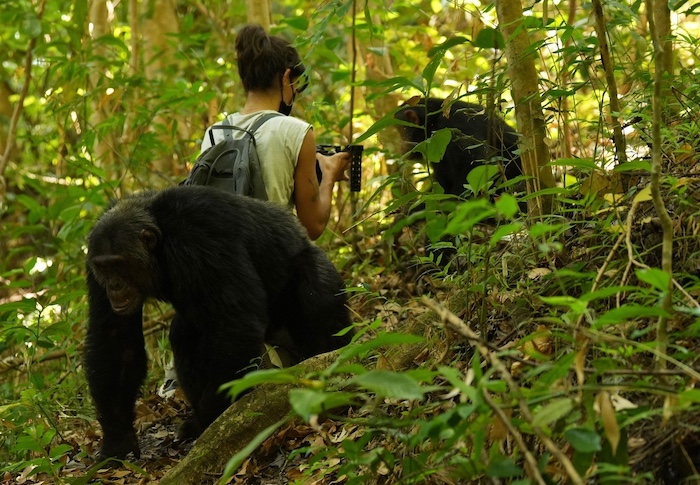
Student 2023 Anthropogeny Field Course Reflection
“Time Domains of Anthropogeny Seen Through the Field”
written by James Yu, Anthropogeny Specialization Track Graduate Student (UC San Diego Department of Biomedical Sciences). Excerpted by CARTA staff.
Student YouTube Playlists
Have you ever wished that you could mix CARTA symposia up a bit to suit a particular interest across time and events? The Anthropogeny Graduate Specialization students have curated for you a myriad of YouTube playlists on topics as diverse as “Tools” to “The Social Human Brain” to “Human Evolution and Health.” Dive in!
CARTA mourns the passing of our friends and colleagues, especially:
Christophe Boesch
CARTA Member
Roger Guillemin
CARTA Member
Sally McBrearty
CARTA Member
Annette C. Merle-Smith
CARTA Major Sponsor
At the close of each year (while supplies last), generous donors who contribute over $100 to CARTA are eligible to receive our full-color, annual CARTA calendar. Although this year's promotion has concluded, you can continue to champion our mission by delving into CARTA's supporter information. While we anticipate the release of our next calendar, please enjoy a complimentary digital version of the 2024 calendar, available for free download. Your ongoing support fuels our exploration of the human story.
As CARTA's gift to you, Program Coordinator, Jesse Robie, has crafted virtual backgrounds from his beautiful photographs taken during the 2023 CARTA field course. You can download these images for FREE!
Join the CARTA community on an exhilarating journey to uncover the mysteries of humanity! At CARTA, our mission is to explore and explain the origins of the human phenomenon, and we're inviting you to be part of this incredible adventure.
Whether you're a curious thinker, a dedicated student, or a seasoned academic, CARTA brings us all together – bridging the gap between scientists, philosophers, educators, and seekers of knowledge worldwide. With access to our engaging UCSD-TV broadcasts and a treasure trove of archived videos across various platforms, you're invited to join the ever-growing CARTA family.
Your support is vital in keeping the spirit of discovery alive. By making a one-time or recurring donation of $20, $35, $50, or more, you're helping us ensure that CARTA's symposia remain freely accessible to everyone, both in-person and online. Together, we can uphold this invaluable free-flow of information that explores the essence of what it means to be human.
Ready to make a difference? Reach out to Jesse Robie at 858-246-0846 or via email at jrobie@health.ucsd.edu, to discover how you can play a part in advancing CARTA's mission.
Click the button below to begin your 100% tax-deductible donation:
Connect via social media with CARTA enthusiasts and members from around the world.
